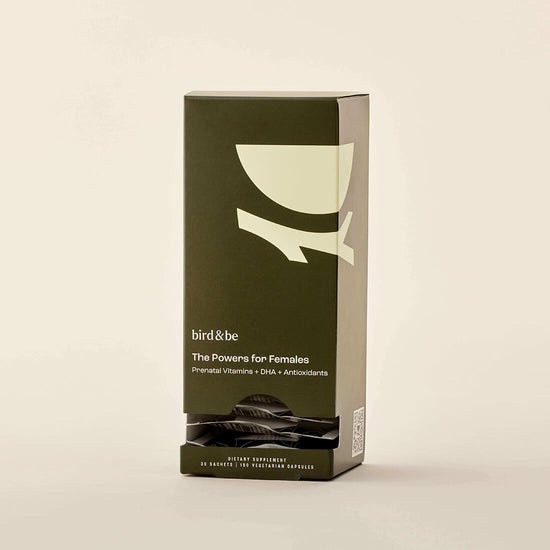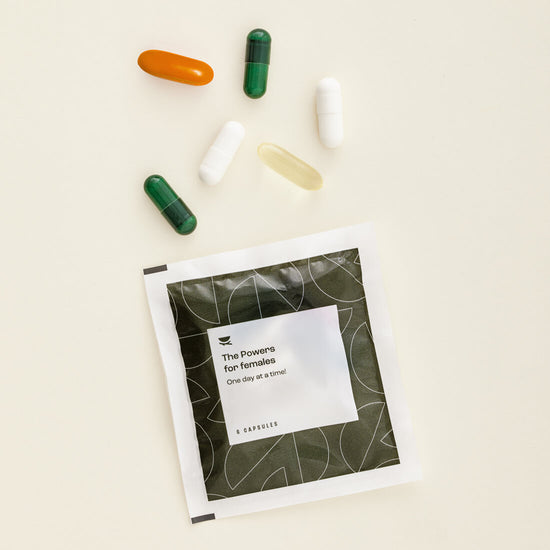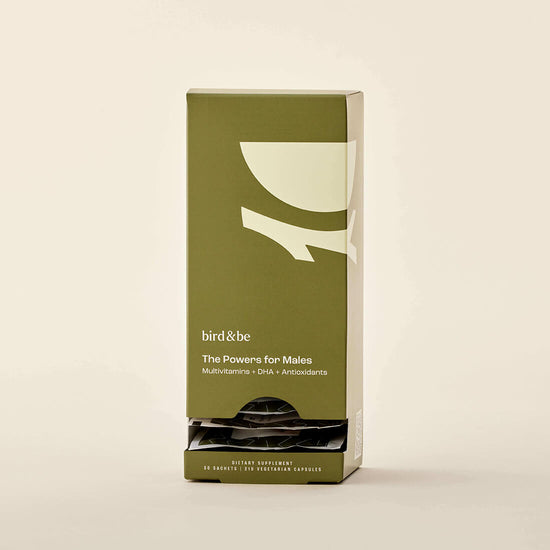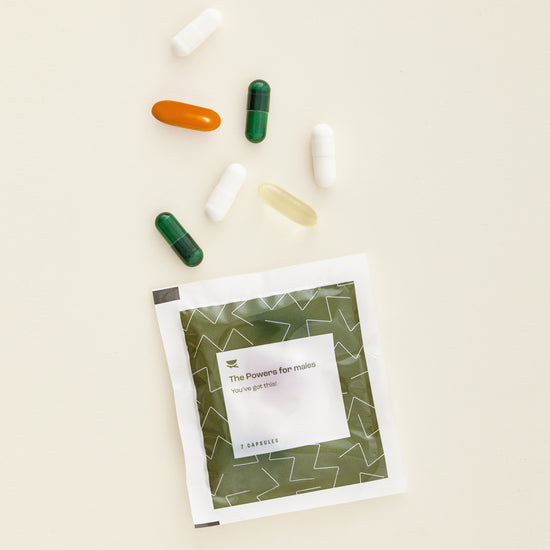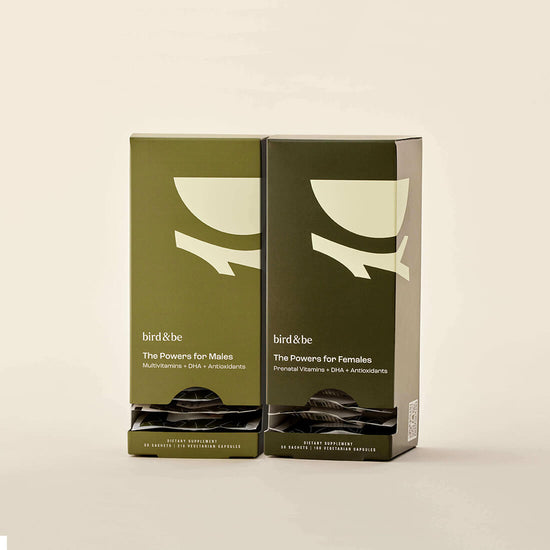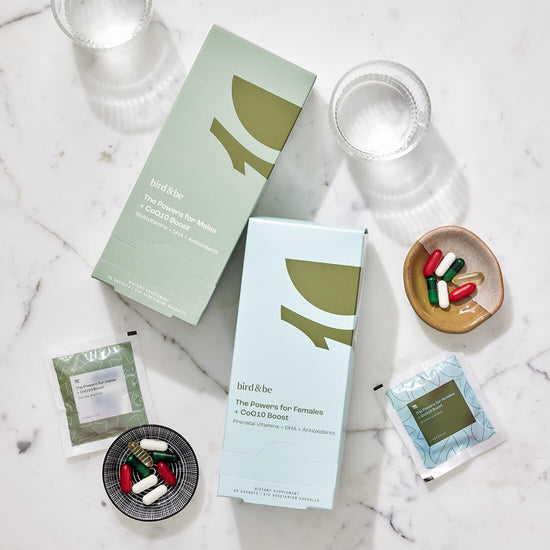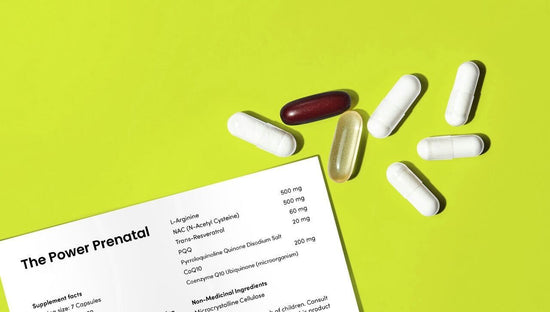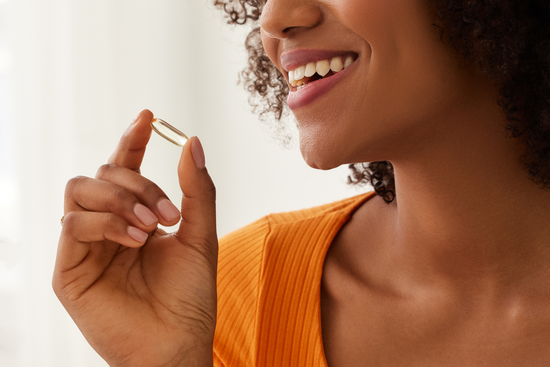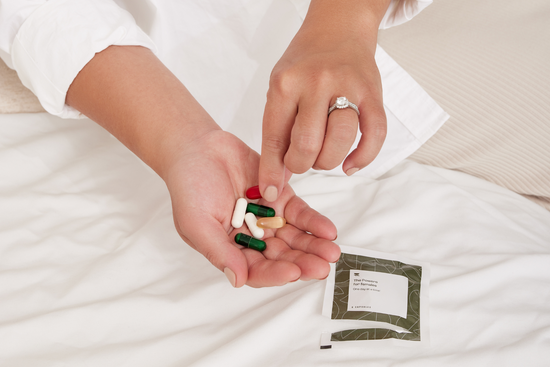This enzyme-meets-antioxidant can seriously improve fertility
Whether you’re trying to conceive, are prepping for a round of IVF, or just know you’d like to have a baby in the not-so-distant future, Coenzyme Q10—or CoQ10 for short—is a powerful antioxidant that can help both eggs and sperm max out their potential.
But what exactly is CoQ10, and why is it so important for both people with eggs and sperm to take for fertility? We got the scoop from Bird&Be’s director of nutraceuticals Dr. Tracy Malone.
What is CoQ10?
“CoQ10 is a vitamin-like substance that promotes the growth and repair of tissues, and it’s the preferred fuel source for eggs and sperm,” says Malone. P.S. Eggs and sperm need a lot of energy for the big jobs they have to do.
And that’s not all CoQ10 is good for. It’s also a trusty fighter against free radicals, which the body produces as a reaction to environmental and other stressors. When too many free radicals are produced, they can wreak havoc. One easy antidote to the damage that can be caused by free radicals is to introduce antioxidants, which can balance free radicals out and keep them in check.
“Antioxidants help to reduce cellular inflammation and immune dysfunction by mopping up any excessive free radicals and neutralizing them inside the cell,” Malone says. They’re even known as “free-radical scavengers,” she says. One of the best scavengers? “CoQ10 is a powerful antioxidant that protects the cell from free-radical damage and helps to restore cellular energy.”
What are the benefits of CoQ10 for women and people with eggs in terms of fertility?
Think of your eggs as tiny entities that need fuel to thrive—a lot of it, actually. “Eggs have much higher energy needs than other tissues,” says Malone. They pull that energy from what’s known as the mitochondrial engine. “CoQ10 has been shown to improve mitochondrial energy output,” Malone says, which means the mitochondrial engine in turn can pass along that energy to the eggs themselves.
Eggs that are lower in CoQ10 have reduced energy production, which impacts their quality and makes them less viable for conception (the same is true for sperm). And even after conception—once egg and sperm meet and form an embryo—that embryo relies heavily on the egg’s mitochondrial energy stores to help the fetus develop.
Plus, there’s the antioxidant benefit: CoQ10 has been known to protect eggs from free radicals. “As eggs age, they’re exposed to environmental stressors that promote free radicals, which can cause damage to the cell, slow down its energy production, and cause DNA fragmentation or damage,” Malone says.
“Depending on your lifestyle, you may be exposed to more free radicals than your neighbor,” Malone says. Things like a chronic lack of sleep, drinking and smoking can all contribute to a higher level of free radicals in the body. As an antioxidant, CoQ10 can help balance out those free radicals and prevent them from becoming harmful.
One final note: “Women carry their eggs throughout their whole lifetime,” Malone says. So when you’re in your 30s, your eggs are too. “This is biologically when we typically see the egg quality and quantity start to decline,” adds Malone. CoQ10 is a smart way to support your cellular health. And if you’re planning for pregnancy, whether on your own or through IVF or IUI, CoQ10 can support the growing embryo, says Malone.
What are the benefits of CoQ10 for men and people with sperm in terms of fertility?
First, the bad news: “Globally, sperm concentrations and quality has declined by close to 50 percent in the past 50 years,” Malone says. “Both semen count and motility are commonly affected.”
But there’s plenty of good news. Even if a semen analysis—which shows how many sperm are released (concentration), how the sperm are shaped (morphology), and how well they move (motility)—comes back abnormal, there’s lots you can do to change that. And CoQ10 is a good bet in that process.
For starters, keep in mind that sperm have a life cycle of about 75 days, Malone says. Every three months or so, you have a new population of sperm—or, as Malone puts it, “new swimmers once a quarter.”
“Sperm are the smallest cells in the body,” she adds. “They’re exquisitely sensitive to their environment—chemicals, smoke, heat, etc.” Just like with eggs, when free radicals are overproduced, it can affect the count and motility of the sperm. “The semen analysis is a microscopic insight into someone's overall health,” Malone says.
Since sperm are constantly turning over, there’s tons of opportunity to tackle the issue if you had an abnormal semen analysis. “The first step is adjusting lifestyle habits, and getting onto an antioxidant protocol,” Malone says. “You can often see the semen analysis resolve to normal within a few months of treatment.”
This is where CoQ10 becomes so helpful. “Studies have shown that higher concentrations of CoQ10 and other antioxidants in the seminal fluid correlate with high count and motility levels,” Malone says.
And that’s huge because low motility is the most common issue on a semen analysis. Think of CoQ10 as swim training for your sperm—as you get those swimmers in action, your motility improves, which increases your chances of successfully fertilizing an egg.
Are there any other studies to back up CoQ10’s benefits?
Yes—lots, in fact. One randomized controlled study found that taking CoQ10 before trying to conceive improved ovarian response and embryo quality in young women with decreased ovarian reserve.
Over the past decade, taking CoQ10 to improve egg quality has been more commonly proposed and studied. Fertilized eggs rapidly divide in the early stages of fertilization, and eggs need a lot of energy to properly divide. Along with other supplements, CoQ10 can support the process of conception and fertilization, since it can help supply that energy.
New studies are even suggesting that CoQ10 may improve the ovarian response to fertility drugs. If you can increase the quantity and quality of mature eggs, an IVF cycle or egg-freezing can be more successful.
How much CoQ10 to take?
Generally speaking, 200 to 600 mg of CoQ10 per day is recommended, with most fertility patients taking 600 mg daily (that’s why our The Powers Females and The Powers for Males both contain 200 mg of CoQ10, and if you opt for The Powers with CoQ10 Boost, you get an extra 400 mg—that's 600 mg total). Your own CoQ10 dosage will of course depend on age as well as any health issues or meds, so it’s always a good idea to connect with a doctor to make sure you’re on the right track.

